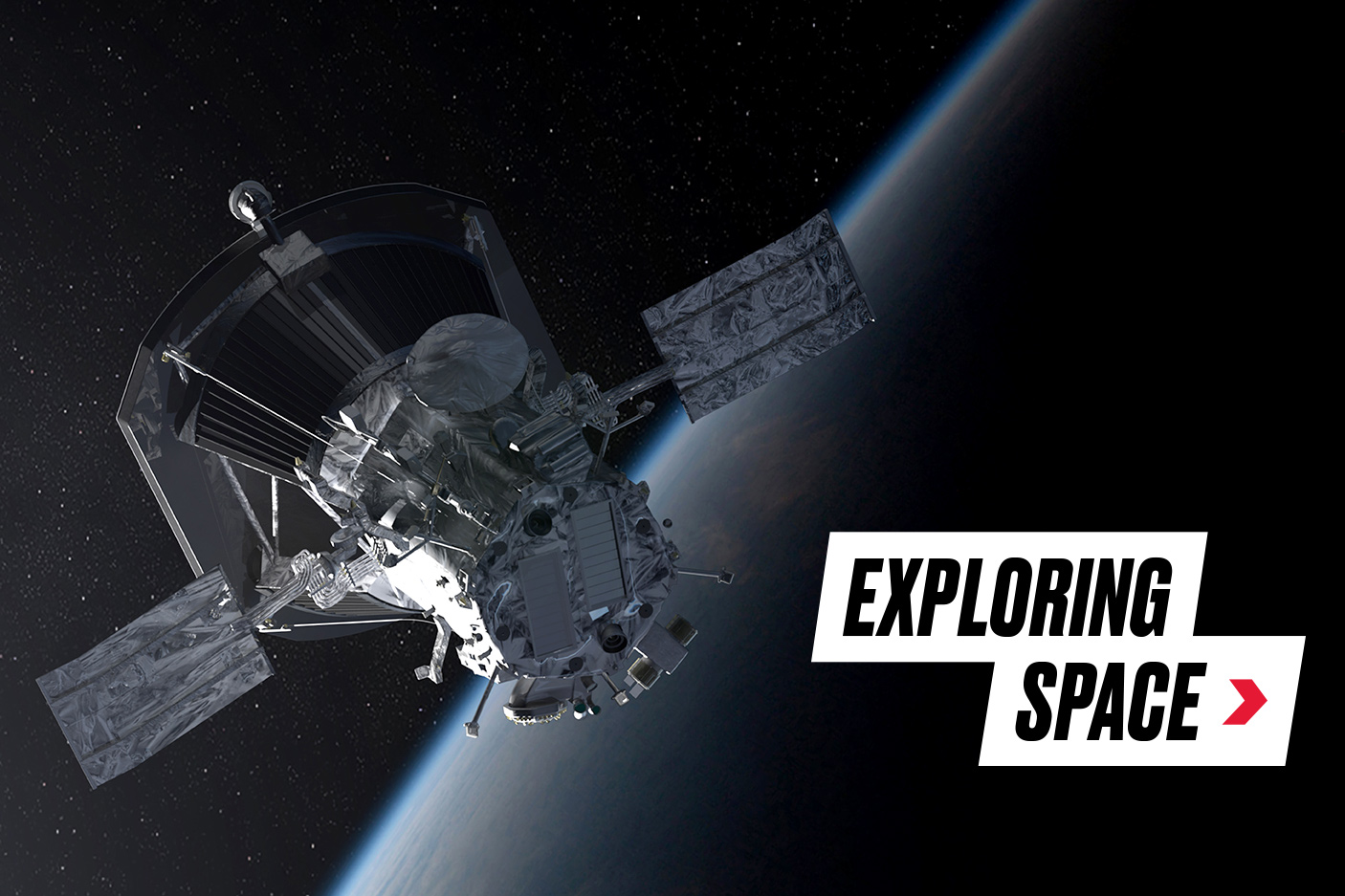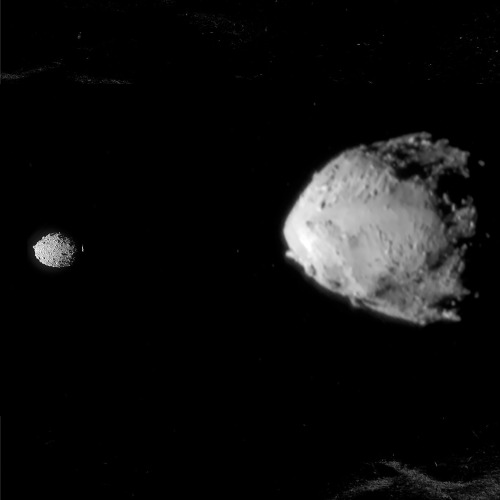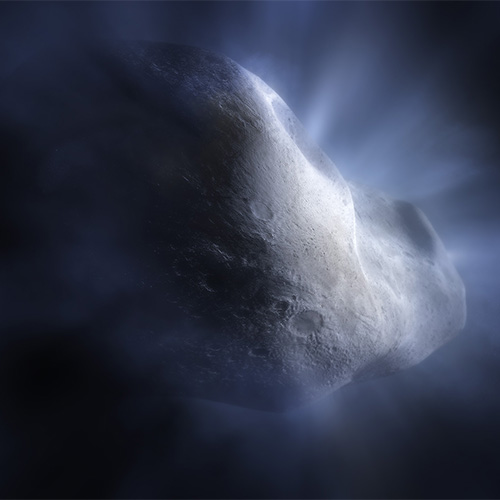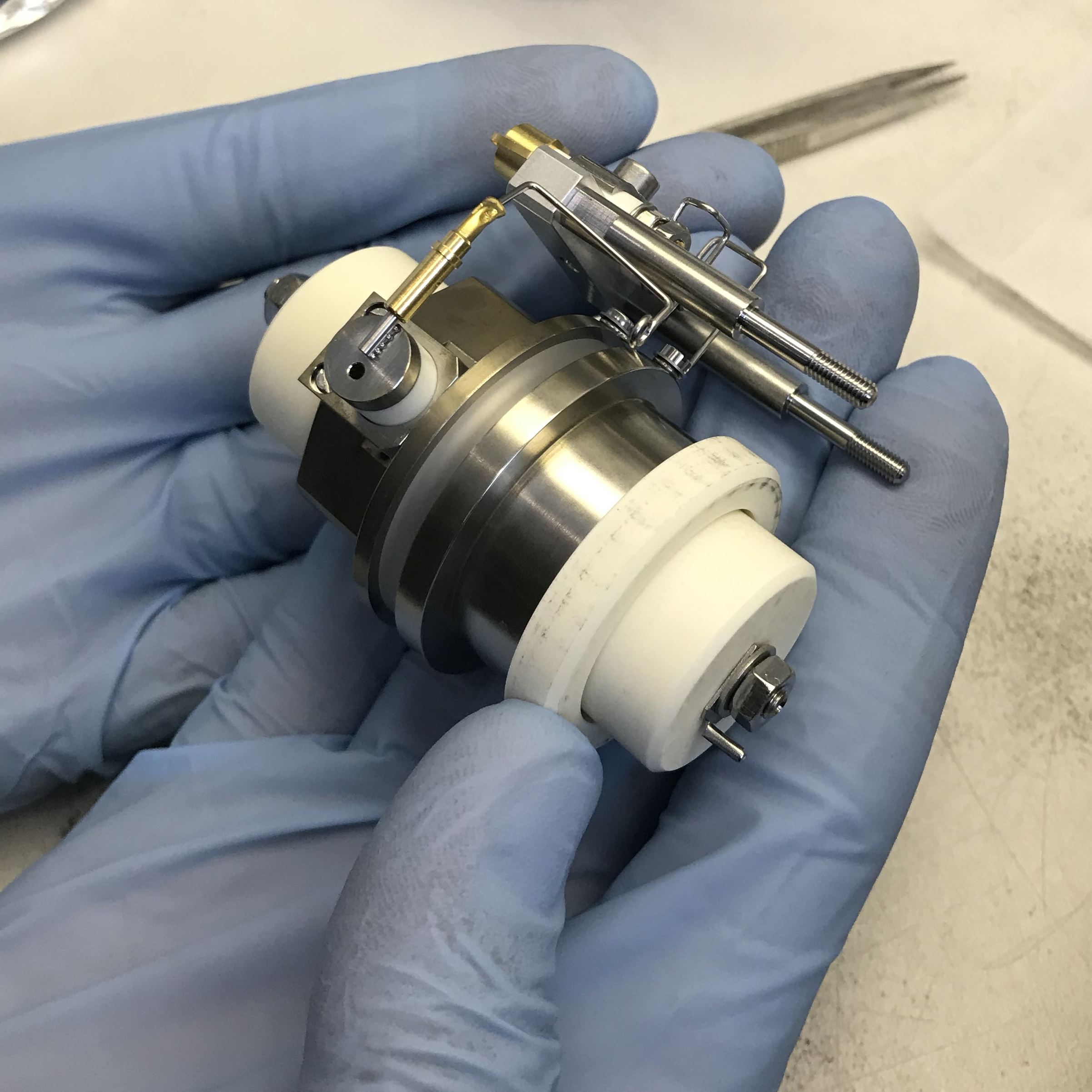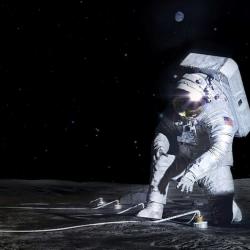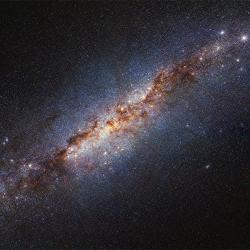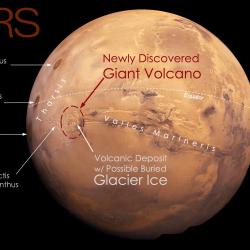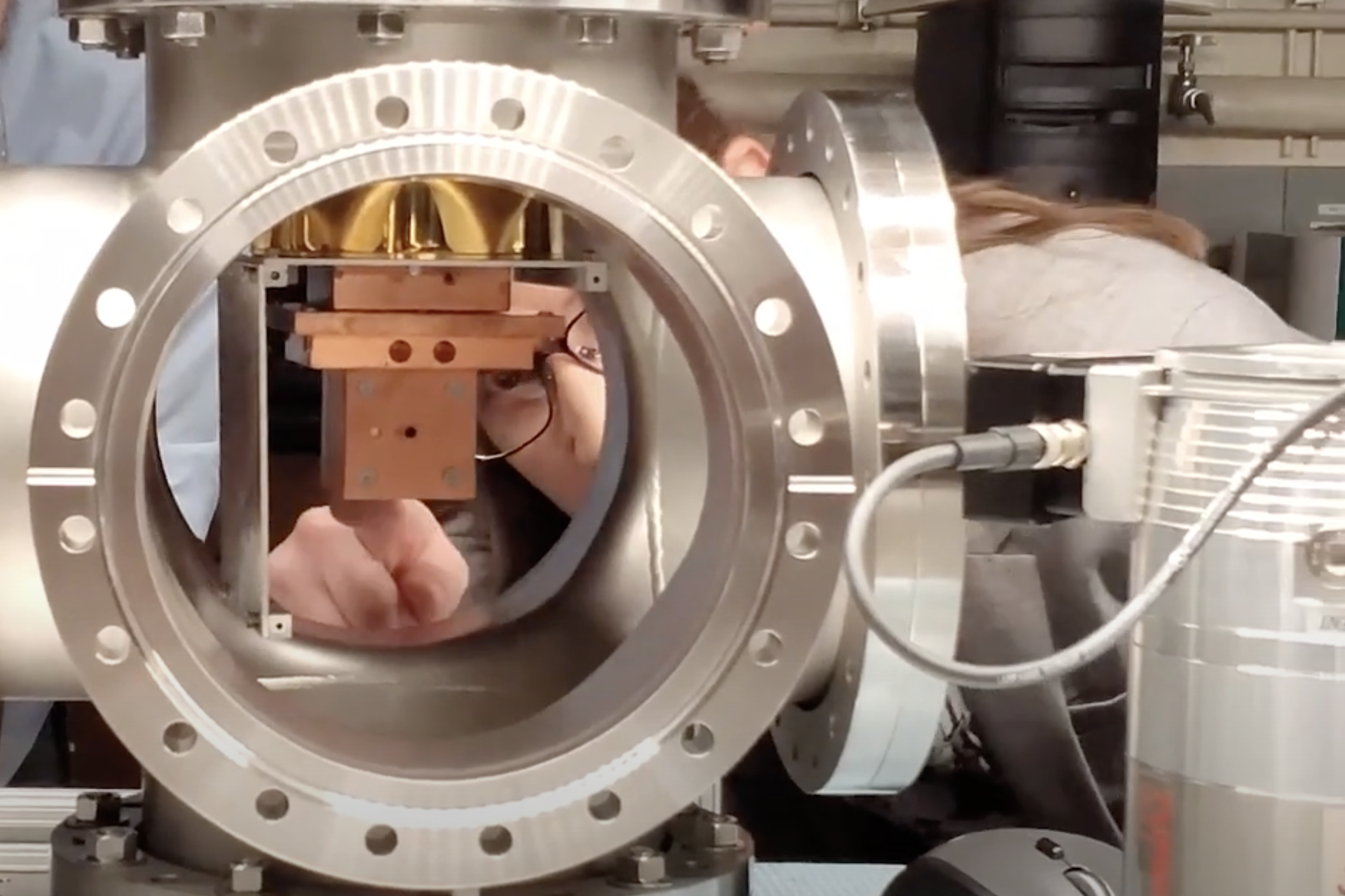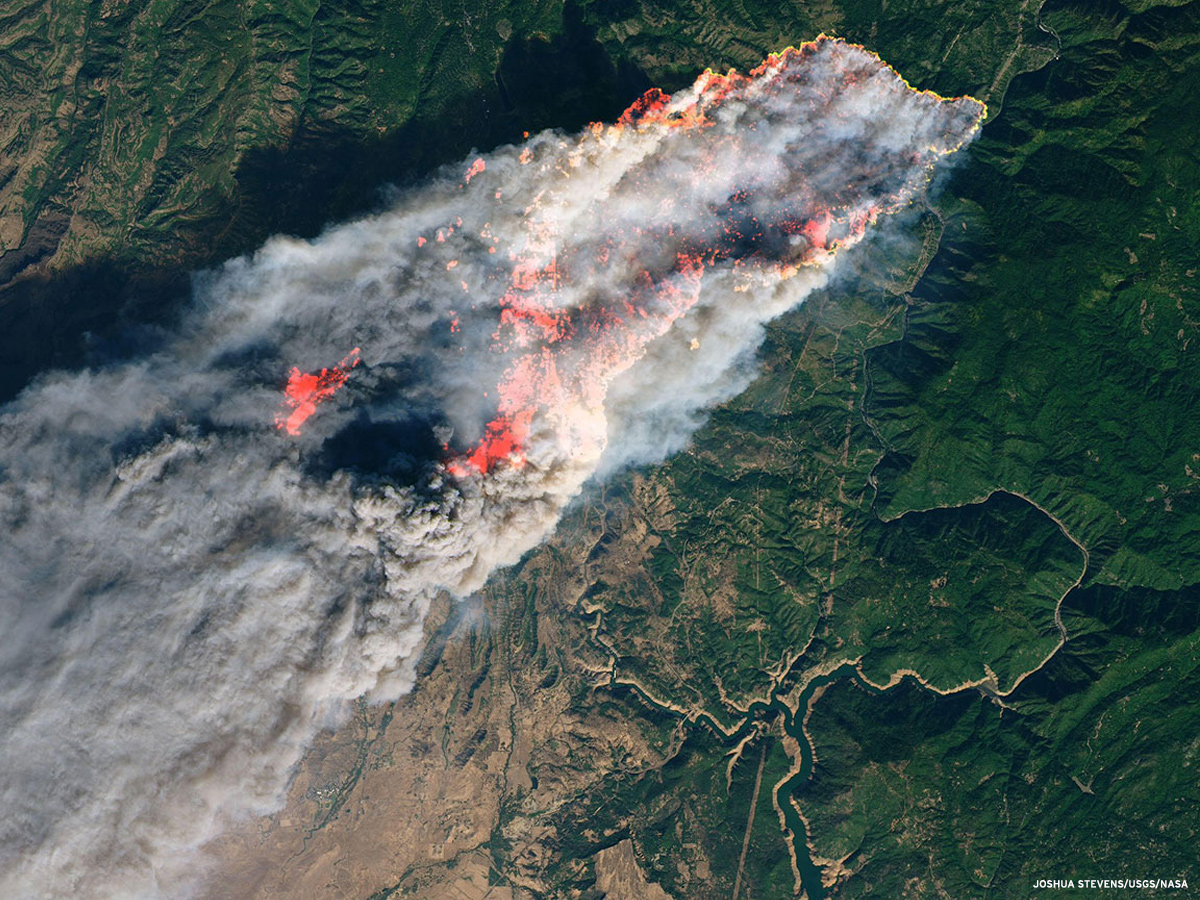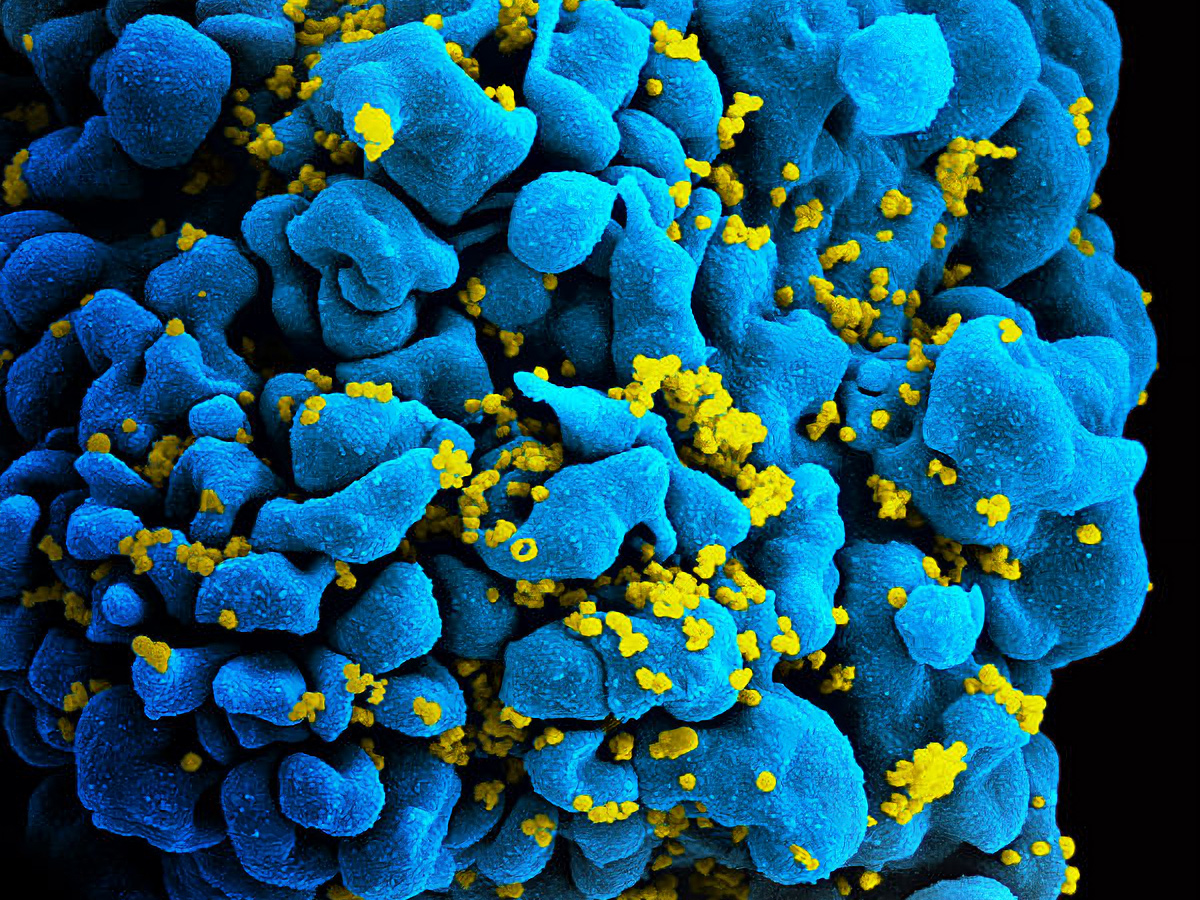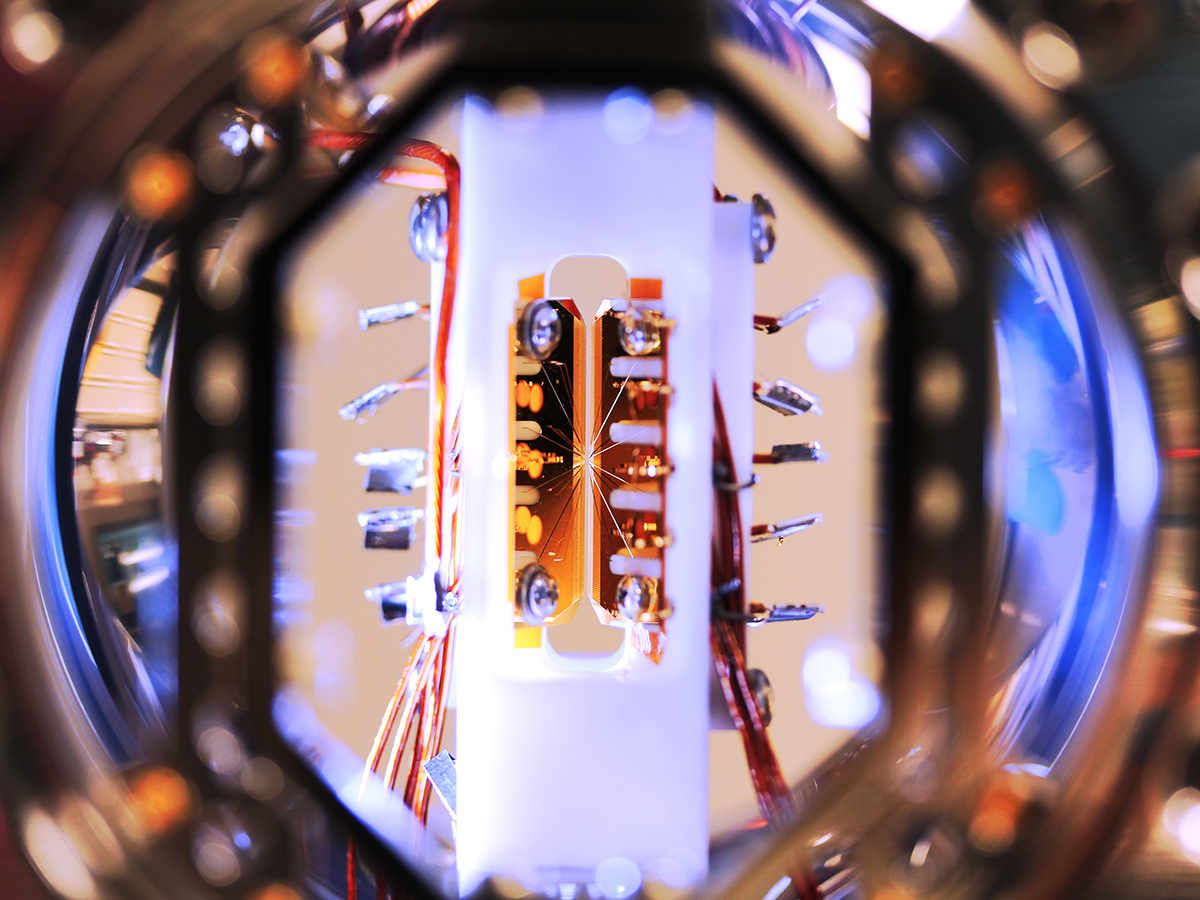EXPLORING SPACE HELPS ANSWER FUNDAMENTAL QUESTIONS ABOUT THE MYSTERIES OF THE UNIVERSE AND THE HISTORY OF OUR SOLAR SYSTEM.
CMNS astronomers, physicists, atmospheric scientists and geologists are all hard at work on the frontiers of space exploration. The college's close relationship with NASA's Goddard Space Flight Center enables faculty members and students to share research facilities and partner to advance our understanding of the universe.
CRESST II aims to support and enhance research and technology collaborations in the space sciences between NASA's Goddard Space Flight Center and partner institutions (University of Maryland, College Park; University of Maryland, Baltimore County; Catholic University of America; Howard University; and Southeastern Universities Research Association). CRESST II researchers carry out observational, experimental and theoretical research projects to study the solar system, stars, galaxies and the universe at large.
JSI is a space science research partnership between the University of Maryland and NASA's Goddard Space Flight Center that fosters new areas of research at the interface of physics and space astronomy in fields related to the study of strong gravity in black holes, high-energy astrophysics and astroparticle physics, cosmology, and gravitational waves.
UMD manages and administeres the Small Bodies Node (SBN) of NASA’s Planetary Data System. The Planetary Data System program ensures that data collected on NASA missions is cataloged, archived and made publicly accessible for future studies. The SBN is the branch of that system that houses data on asteroids, comets, meteorites and other small objects in space.



